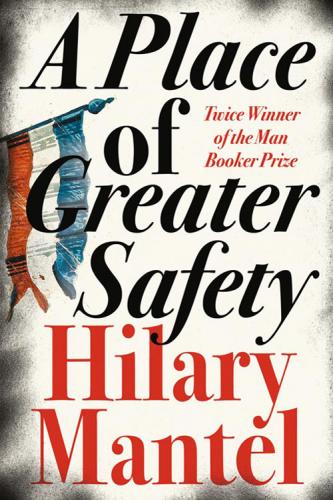II. Liberty, Gaiety, Royal Democracy (1790)
IV. More Acts of the Apostles (1791)
II. Danton: His Portrait Made (1791)
III. Three Blades, Two in Reserve (1791–1792)
IV. The Tactics of a Bull (1792)
III. The Visible Exercise of Power (1792–1793)
V. A Martyr, a King, a Child (1793)
VIII. Imperfect Contrition (1793)
XI. The Old Cordeliers (1793–1794)
XIII. Conditional Absolution (1794)
Excerpt from Wolf Hall by Hilary Mantel
P.S. Ideas, interviews & features …
About the author
Read on
THIS IS A NOVEL about the French Revolution. Almost all the characters in it are real people and it is closely tied to historical facts – as far as those facts are agreed, which isn’t really very far. It is not an overview or a complete account of the Revolution. The story centres on Paris; what happens in the provinces is outside its scope, and so for the most part are military events.
My main characters were not famous until the Revolution made them so, and not much is known about their early lives. I have used what there is, and made educated guesses about the rest.
This is not, either, an impartial account. I have tried to see the world as my people saw it, and they had their own prejudices and opinions. Where I can, I have used their real words – from recorded speeches or preserved writings – and woven them into my own dialogue. I have been guided by a belief that what goes on to the record is often tried out earlier, off the record.
There is one character who may puzzle the reader, because he has a tangential, peculiar role in this book. Everyone knows this about Jean-Paul Marat: he was stabbed to death in his bath by a pretty girl. His death we can be sure of, but almost everything in his life is open to interpretation. Dr Marat was twenty years older than my main characters, and had a long and interesting pre-revolutionary career. I did not feel that I could deal with it without unbalancing the book, so I have made him the guest star, his appearances few but piquant. I hope to write about Dr Marat at some future date. Any such novel would subvert the view of history which I offer here. In the course of writing this book I have had many arguments with myself, about what history really is. But you must state a case, I think, before you can plead against it.
The events of the book are complicated, so the need to dramatize and the need to explain must be set against each other. Anyone who writes a novel of this type is vulnerable to the complaints of pedants. Three small points will illustrate how, without falsifying, I have tried to make life easier.
When I am describing pre-revolutionary Paris, I talk about ‘the police’. This is a simplification. There were several bodies charged with law enforcement. It would be tedious, though, to hold up the story every time there is a riot, to tell the reader which one is on the scene.
Again, why do I call the Hôtel de Ville ‘City Hall’? In Britain, the term ‘Town Hall’ conjures up a picture of comfortable aldermen patting their paunches and talking about Christmas decorations or litter bins. I wanted to convey a more vital, American idea; power resides at City Hall.
A smaller point still: my characters have their dinner and their supper at variable times. The fashionable Parisian dined between three and five in the afternoon, and took supper at ten or eleven o’clock. But if the latter meal is attended with a degree of formality, I’ve called it ‘dinner’. On the whole, the people in this book keep late hours. If they’re doing something at three o’clock, it’s usually three in the morning.
I am very conscious that a novel is a cooperative effort, a joint venture between writer and reader. I purvey my own version of events, but facts change according to your viewpoint. Of course, my characters did not have the blessing of hindsight; they lived from day to day, as best they could. I am not trying to persuade my reader to view events in a particular way, or to draw any particular lessons from them. I have tried to write a novel that gives the reader scope to change opinions, change sympathies: a book that one can think and live inside. The reader may
